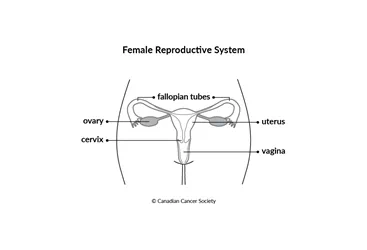What is uterine cancer?
Uterine cancer is the most common cancer of the female
The uterus is part of the female reproductive system. The uterus is the hollow,
muscular, pear-shaped organ where a fetus develops and grows during pregnancy. The
inner lining of the uterus is called the endometrium. It is made up of tissue with
many

Cells in the uterus sometimes change and no longer grow or behave normally. These changes can lead to non-cancerous (benign) conditions such as endometriosis. They can also lead to non-cancerous tumours such as uterine fibroids.
Changes to the cells of the uterus can also cause precancerous conditions. This means that the abnormal cells are not yet cancer, but there is a chance that they will become cancer if they aren’t treated. The precancerous condition of the uterus is called endometrial hyperplasia.
But in some cases, changes to cells of the uterus can cause uterine cancer. Most often, uterine cancer starts in the gland cells of the endometrium. This type of cancer is called endometrial carcinoma. A less common type of uterine cancer is uterine sarcoma. It starts in the muscle cells of the uterus.
The uterus
Endometrial carcinoma
Uterine sarcoma
Endometrial intraepithelial neoplasia (EIN)
Uterine fibroids
Endometriosis
Your trusted source for accurate cancer information
With support from readers like you, we can continue to provide the highest quality cancer information for over 100 types of cancer.
We’re here to ensure easy access to accurate cancer information for you and the millions of people who visit this website every year. But we can’t do it alone.
Every donation helps fund reliable cancer information, compassionate support services and the most promising research. Please give today because every contribution counts. Thank you.
